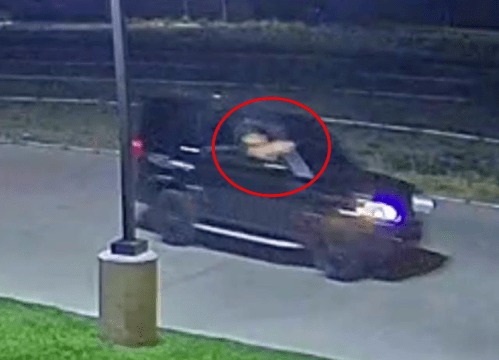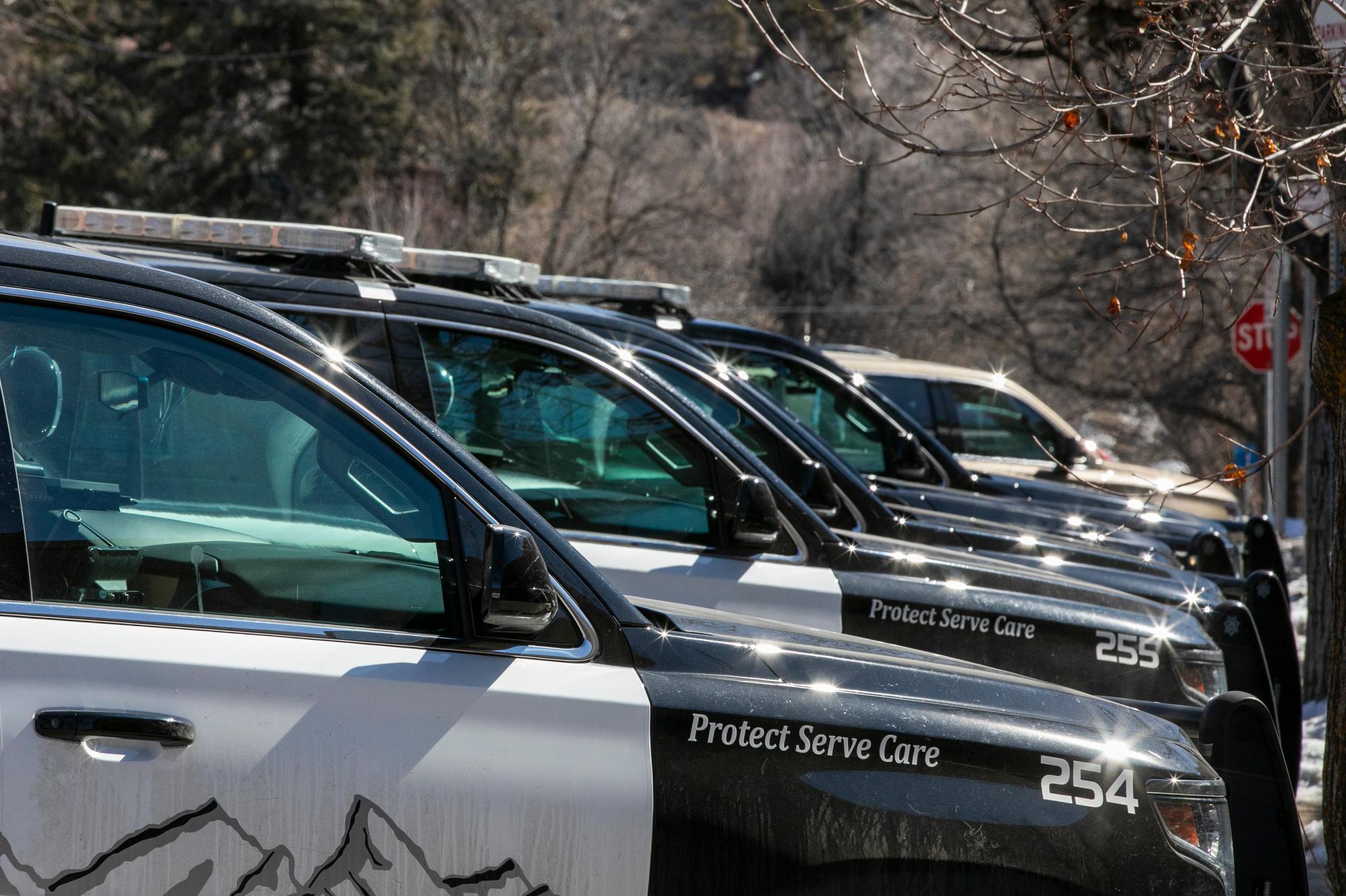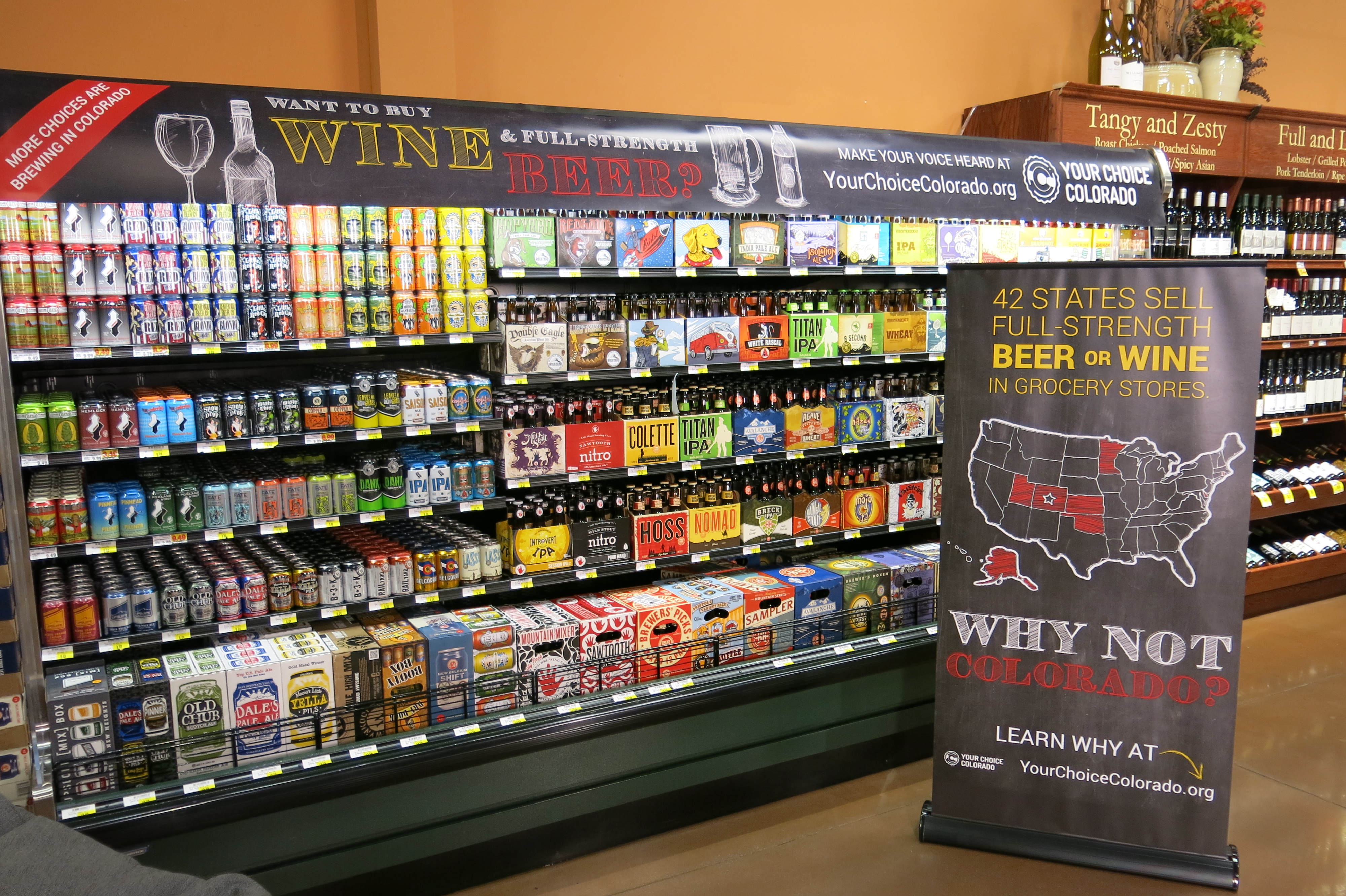
Grocery store operators say it’s a question they get frequently from shoppers, especially newcomers to the state: Where’s the beer section?
Safeway’s Russ Novotny says he fielded that question 10 to 20 times a week when he worked in a store.
“They were surprised,” said Novotny. “It was an alarming deal that they could not have the same convenience in Colorado that they had in other states.”
Novotny now manages liquor sales for Safeway stores in five Western states. And he’s part of a new push to make Colorado’s liquor laws look more like the rest of the country by allowing the sale of full strength wine and beer in grocery and convenience stores.
The new effort launched Wednesday calls itself Your Choice Colorado. It’s funded by three big chains – Walmart, Safeway, and King Soopers – and says its first focus is to lobby the state Legislature to change the law during its next session. If that fails, as a half dozen similar attempts have in recent years, the group plans to take the issue to the 2016 ballot.
Prohibition Relic Or Industry Incubator?
The way Colorado law currently works, liquor licenses are limited to one per company. The result is that all of the state’s liquor stores are individually-run businesses. Supermarket chains can each get a single license, which they can use at one location.
Due to laws dating back to the end of prohibition, chain grocery stores are allowed to sell beer that has up to 3.2 percent alcohol by volume, but sales of that product have dropped nearly 40 percent over the past decade.
Supporters of grocery store sales argue that Colorado’s liquor laws are badly in need of an update.
“Today, consumers in 42 other states can buy Colorado craft beer or wine in their local grocery stores. But right here, where they’re brewed, we can’t,” said Your Choice Colorado spokeswoman Georgie Aguirre-Sacasa.
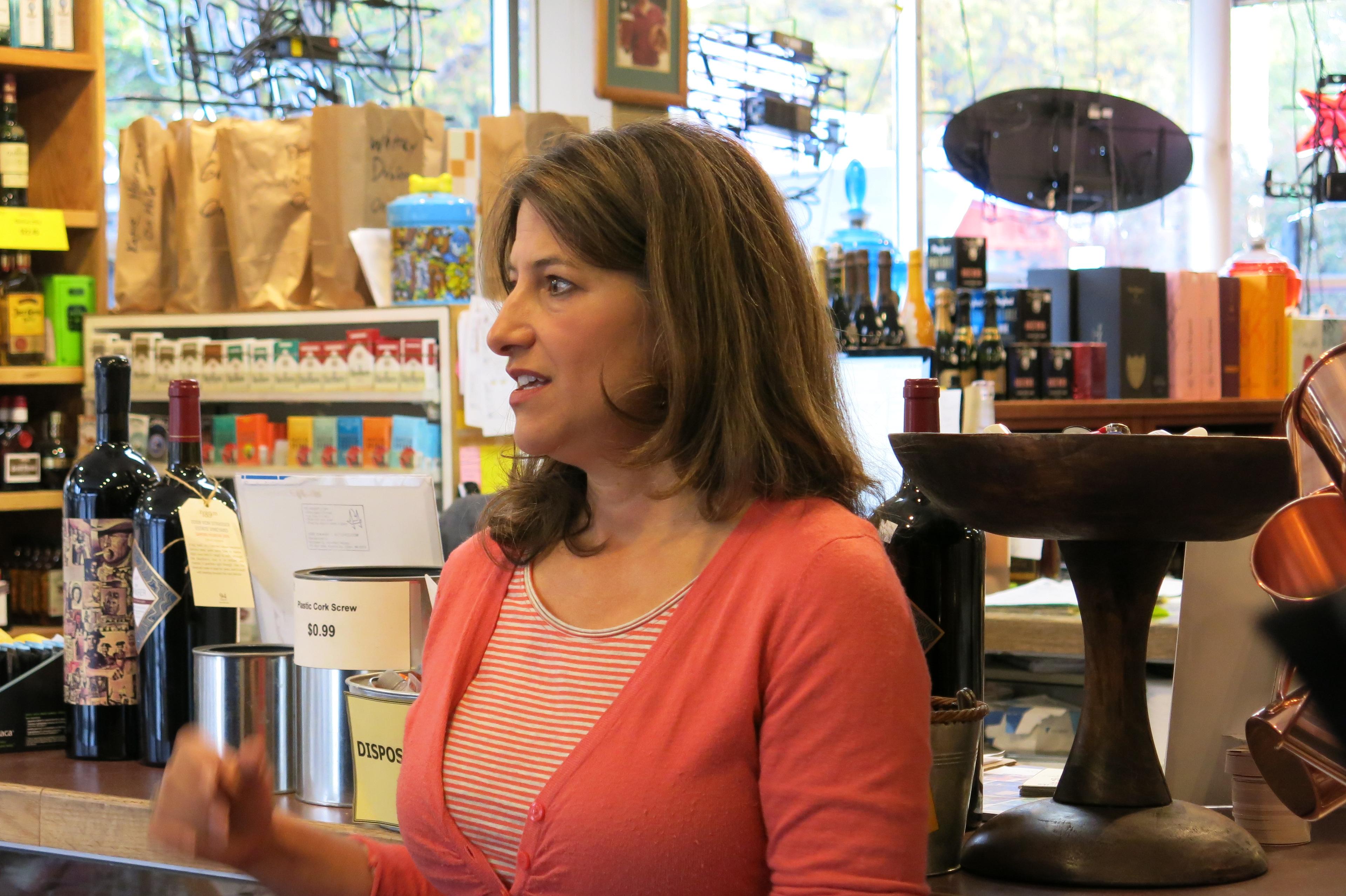
Liquor store owners started mobilizing to protect Colorado’s one-owner-one-license law over the summer. The existing system has encouraged liquor store owners to open up as closely as possible to groceries, to pull in their customers. If people were able to buy their beer or wine without having to take that extra walk next door, they argue, those small businesses will close.
“I’m very worried,” said Carolyn Joy, whose family has owned Joy’s Wine and Spirits on 6th street in Denver for five decades.
Despite having several grocery stores within walking distance, Joy believes she could survive the added competition, potentially by specializing further in high-end, harder-to-find labels. But she doesn’t think that strategy will work for everyone.
“I’m sure a lot of people would not be able to stay in business. That is the hard truth,” said Joy.
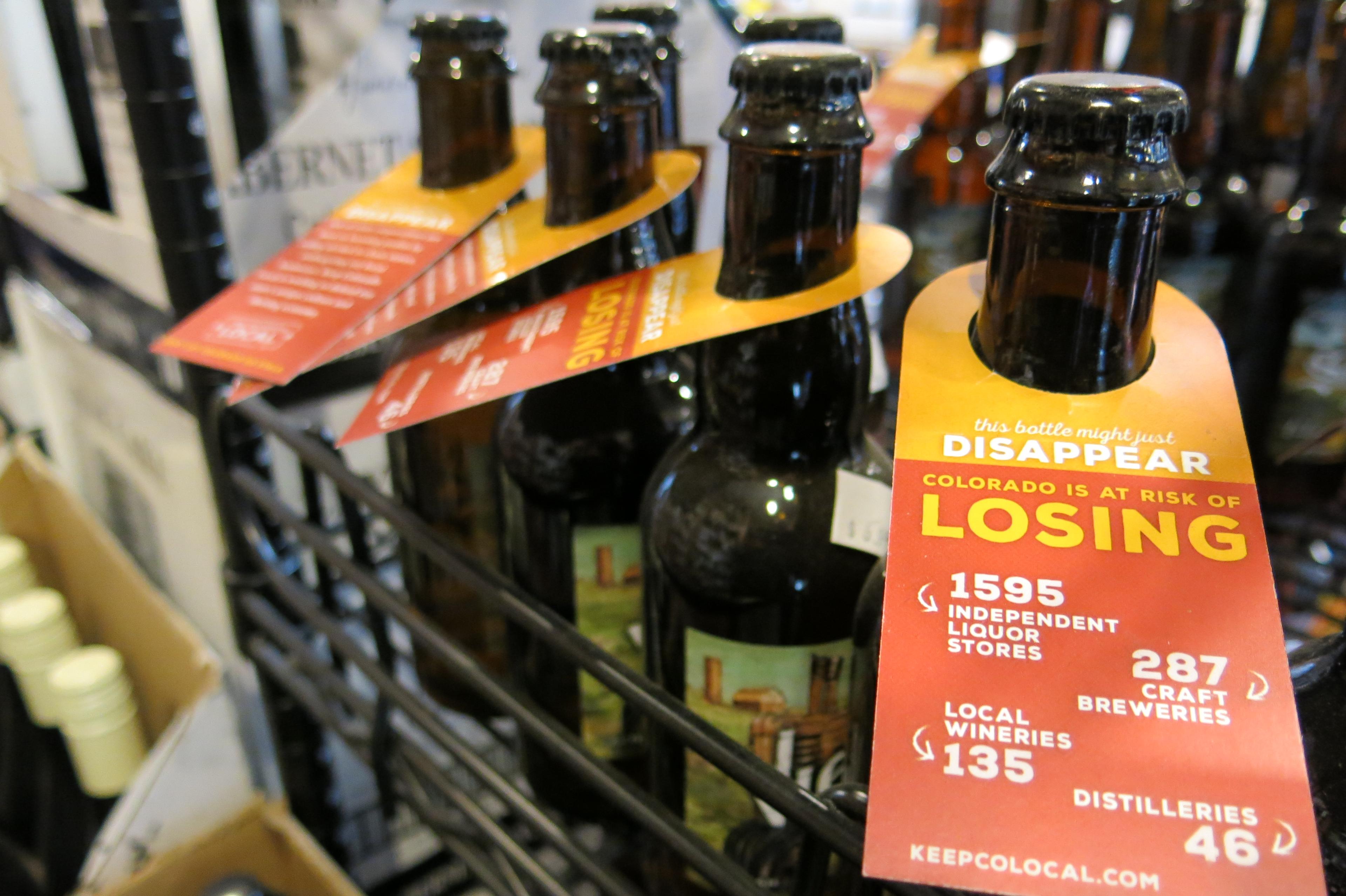
Colorado’s craft brewing industry has also been vocal in their support for the current law. They say having a thriving network of locally-owned liquor stores has played a vital role in fostering the explosion in micro-breweries.
“To be able to walk into these liquor stores and sell face to face is how the largest and older breweries were built in this state,” says Steve Kurowski with the Colorado Brewers Guild. “This is about the 250 smallest breweries in Colorado that may lose all the access to market if they can’t do business with grocery stores.”
Your Choice Colorado held its kick-off event in the expansive aisles of King Soopers’ single alcohol-selling store, in Glendale. The group highlighted coolers of relatively-obscure local beers and pledged that grocery stores will be open to taking a risk on new brews.
But Kurowski dismissed the idea that existing grocery stores will have the shelf space to make good on that claim.
“Is cheese going to give up their room? Is bread aisle going to give up their room? What’s going to give way? Yogurt? I don’t think so,” said Kurowski.


